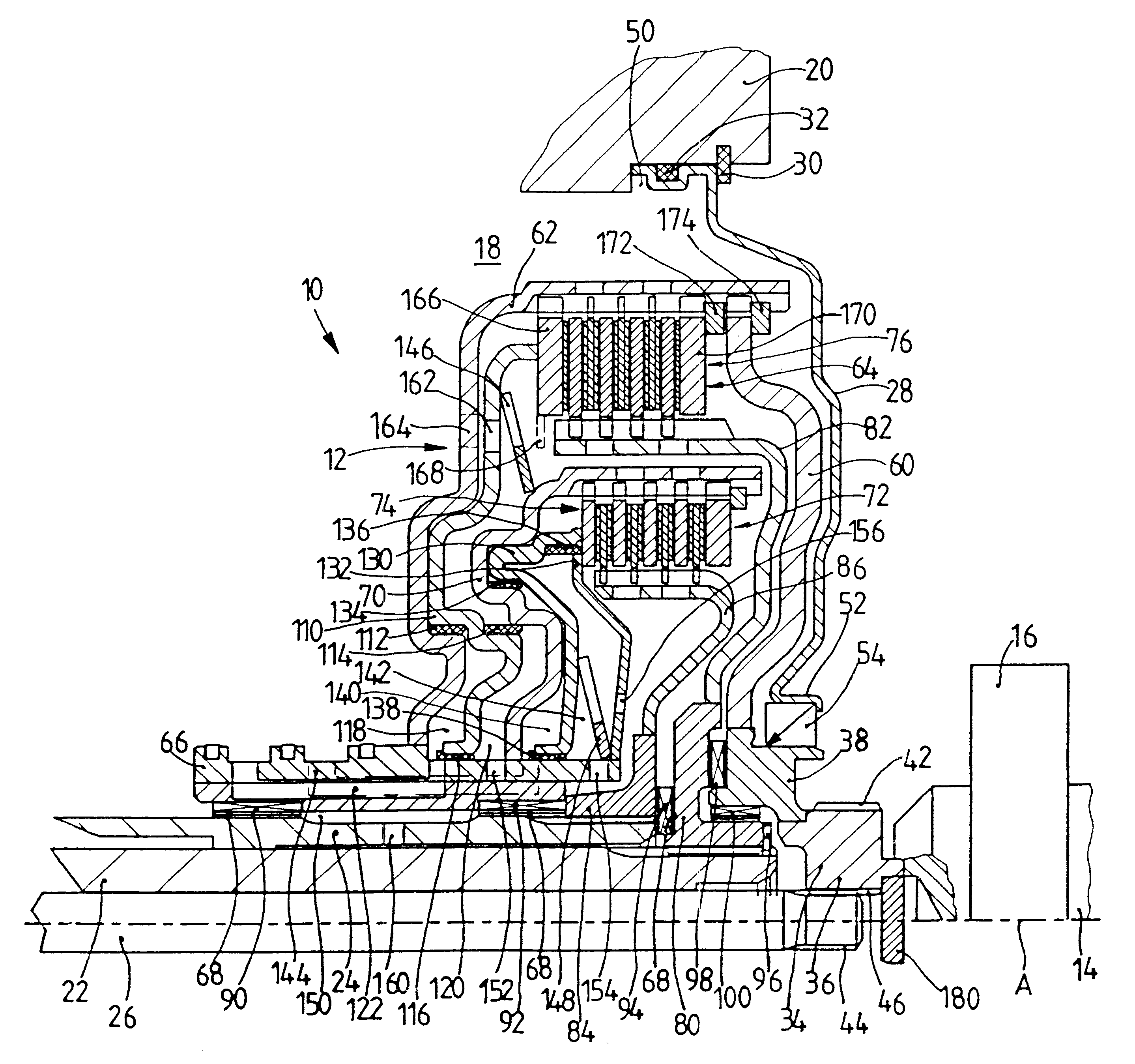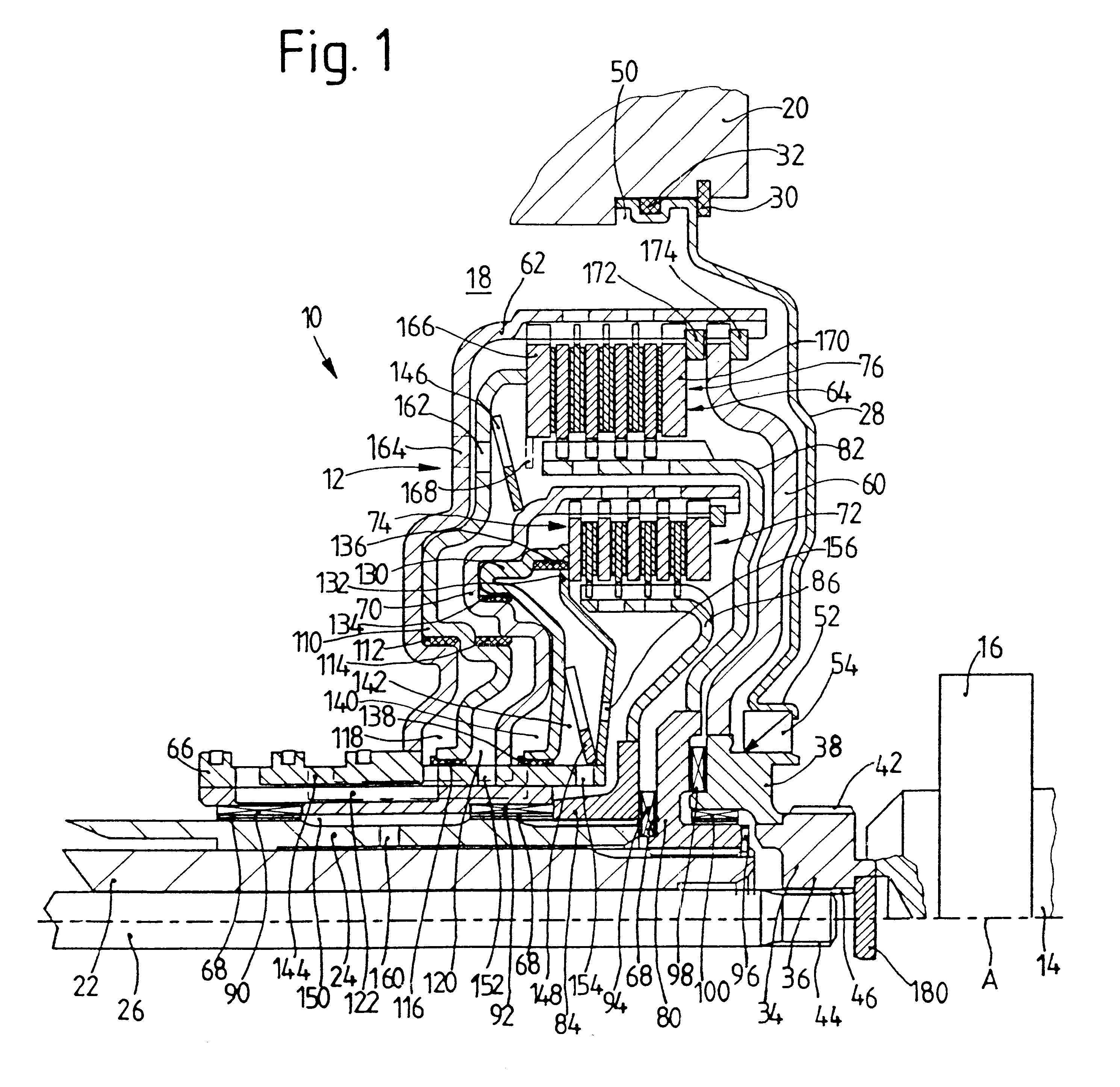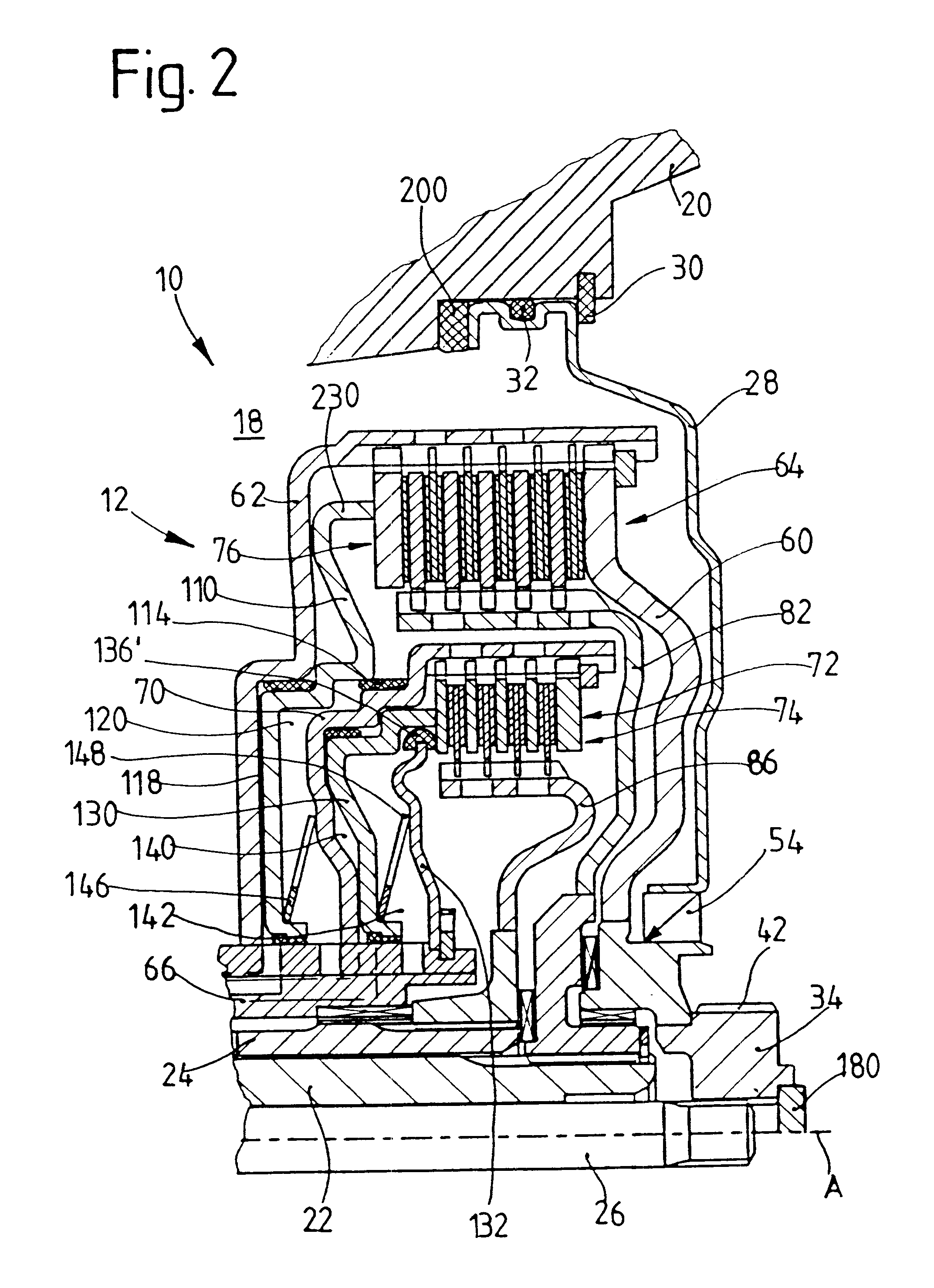Multiple-clutch device
a multi-clutch, clutch technology, applied in the direction of rotary clutches, fluid couplings, road transportation, etc., can solve the problems of high slippage, correspondingly extensive heat generation, and loss of fluid, and achieve the effect of deflecting fluid
- Summary
- Abstract
- Description
- Claims
- Application Information
AI Technical Summary
Benefits of technology
Problems solved by technology
Method used
Image
Examples
Embodiment Construction
FIG. 1 shows a double-clutch 12 arranged in a drivetrain 10 between a drive unit and a transmission. The drive unit, for example, an internal combustion engine, is represented in FIG. 1 only by a driven shaft 14, such as a crankshaft 14, with a coupling end 16 serving to connect a torsional vibration damper, not shown. In FIG. 1, the transmission is represented by a transmission housing portion 20 defining a transmission housing cover 18 and by two transmission input shafts 22 and 24, both of which are constructed as hollow shafts, wherein transmission input shaft 22 extends through transmission input shaft 24 substantially coaxial thereto. A pump drive shaft which serves to drive a transmission-side oil pump, not shown in FIG. 1, as will be described more fully in the following, is arranged in the interior of the transmission input shaft 22.
The double-clutch 12 is received in the transmission housing cover 18, wherein the interior of the cover is closed in the direction of the driv...
PUM
 Login to View More
Login to View More Abstract
Description
Claims
Application Information
 Login to View More
Login to View More - R&D
- Intellectual Property
- Life Sciences
- Materials
- Tech Scout
- Unparalleled Data Quality
- Higher Quality Content
- 60% Fewer Hallucinations
Browse by: Latest US Patents, China's latest patents, Technical Efficacy Thesaurus, Application Domain, Technology Topic, Popular Technical Reports.
© 2025 PatSnap. All rights reserved.Legal|Privacy policy|Modern Slavery Act Transparency Statement|Sitemap|About US| Contact US: help@patsnap.com



